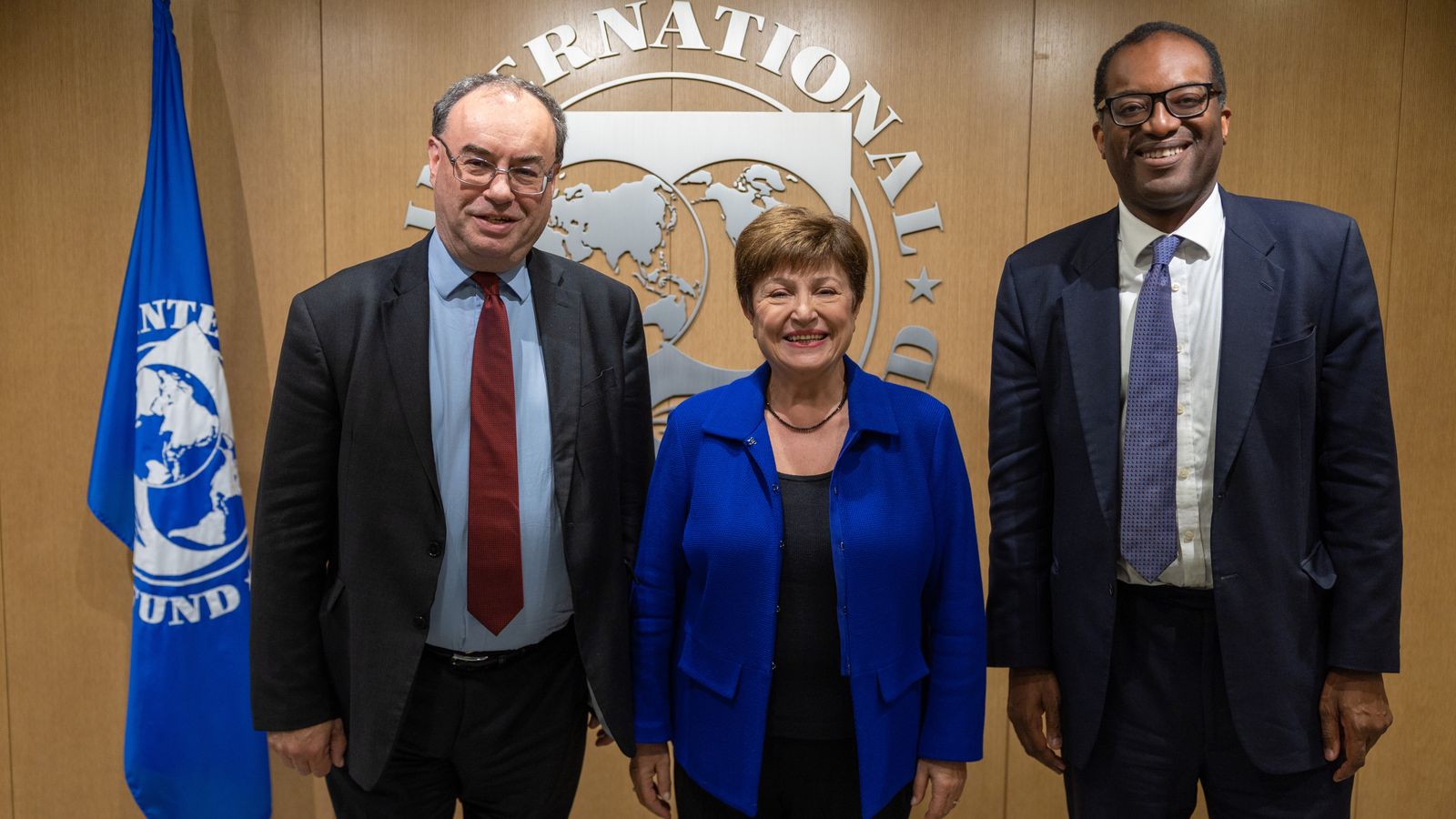Kwasi Kwarteng in Washington DC for talks with IMF as Liz Truss faces revolt at home

As Liz Truss faces open revolt in her own party over her tax cut plans, her Chancellor Kwasi Kwarteng will today try and reassure the IMF that everything is under control.
Ministers continue to be under pressure for the market chaos that erupted after the government announced its £45bn package of unfunded tax cuts last month.
The prime minister and her chancellor say the cuts are needed to get Britain’s economy growing again, as data published on Wednesday suggested we are heading for recession.
Mr Kwarteng will meet with IMF leaders in Washington DC on Thursday, after the institution’s chief economist said tax cuts threatened to cause “problems” for the UK economy.
The IMF has said Britain’s priority should be tackling inflation rather than adding to the price problem through tax giveaways to achieve economic growth.
The chancellor was seen touring the IMF’s offices and being shown artwork on Wednesday ahead of talks today.
Back at home, Ms Truss is facing growing calls for another policy reversal as her MPs see more and more polls threatening a Labour landslide at the next election.
The PM and her chancellor have already been forced into a U-turn on one of the many tax cutting policies within their plan – namely scrapping the 45p tax rate for the highest earners.
In her first PMQs since the dramatic mini-budget she pledged not to cut public spending to balance the books – despite a leading economics-focused think tank warning the government is billions short of the sums needed.
Advertisement
Read more:
What on earth is happening in UK markets?
What are bonds and where do they fit in the mini-budget crisis?
The Institute for Fiscal Studies (IFS) has warned that the government would have to cut spending or raise taxes by £62bn if it is to stabilise or reduce the national debt as promised.
Mel Stride, the Tory chairman of the Commons Treasury Committee, said that given Ms Truss’s commitments to protect public spending, there was a question over whether any plan that did not include “at least some element of further row back” on the £43 billion tax-slashing package can reassure investors.
“Credibility might now be swinging towards evidence of a clear change in tack rather than just coming up with other measures that try to square the fiscal circle,” Mr Stride said.
Conservative former minister David Davis called the mini-budget a “maxi-shambles” and suggested reversing some of the tax cuts would allow Ms Truss and Mr Kwarteng to avert leadership challenges for a few months.
Please use Chrome browser for a more accessible video player
2:37
Time ticking for pension managers
Meanwhile, Jacob Rees-Mogg has suggested the government could ignore gloomy Office for Budget Responsibility forecasts if they predict low growth and rising debt.
The Business Secretary told ITV’s Peston that “its record of forecasting accurately hasn’t been enormously good” and that the chancellor could draw on “other sources of information”.
